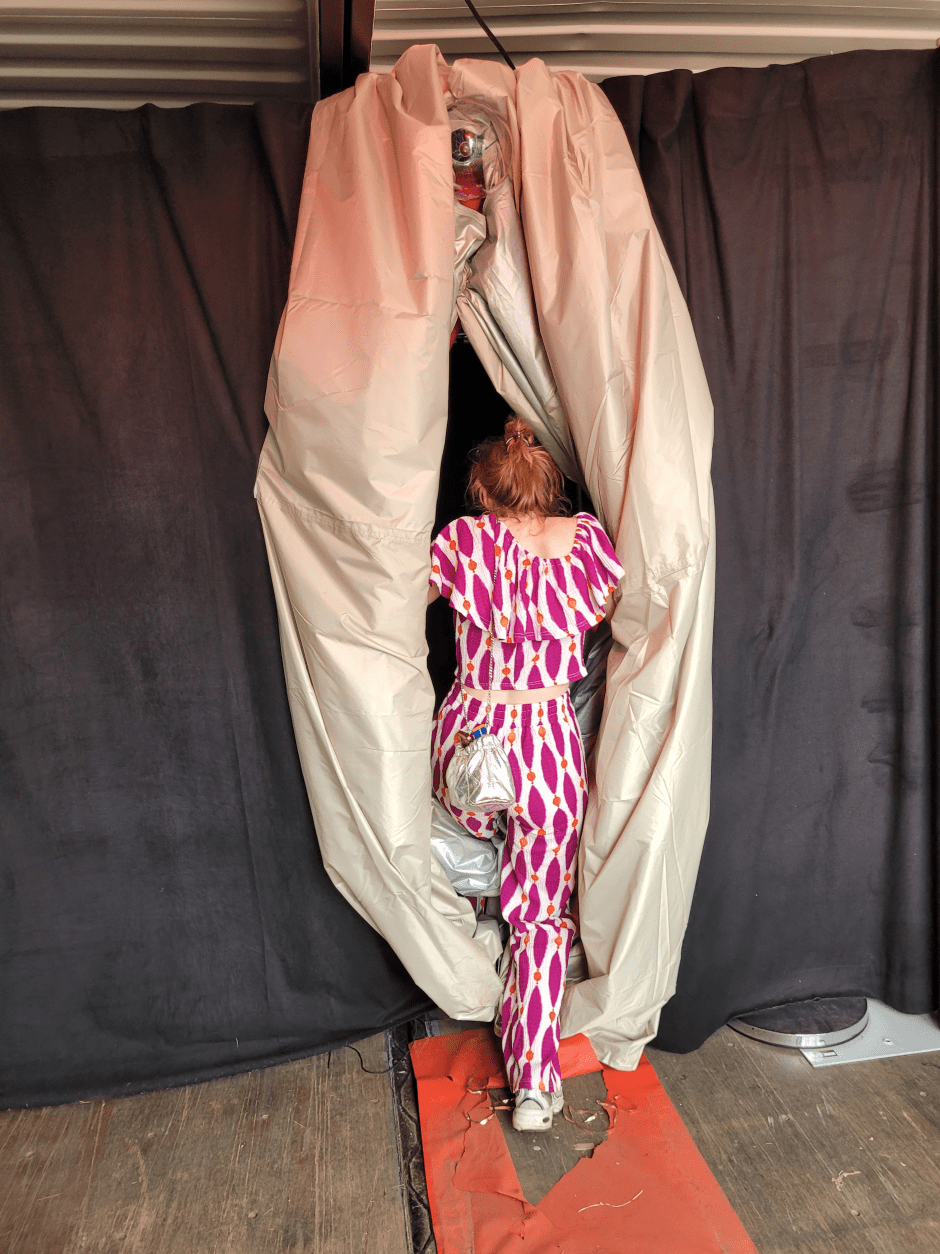
The pill and condom are out, “natural” contraception is in, researchers see at Lowlands
While the pill unleashed a sexual revolution in the 1960s, today contraceptives are increasingly giving way to “natural” methods like periodic abstinence and early withdrawal. Why is that? Time for UvA PhD student Wieke Beumer to ask festival-goers at Lowlands about contraception.
“Wow, what is this?” With wide eyes, visitors to Lowlands last weekend looked at the female condom that Wieke Beumer, PhD candidate in unintended pregnancies at Amsterdam UMC, had brought to the festival site. When Beumer then explained that you can insert the female condom before going out for the evening, people were even more shocked: “That’s weird to think about having sex beforehand. Then you’re a bit of a slut.”

Together with researchers from LUMC, Erasmus MC, and Erasmus University, Beumer asked 1,200 visitors at Lowlands last weekend about their opinions about contraception and their experiences using it. “Research into experiences with contraception is often conducted in a specific group, such as girls under 18,” Beumer explains. “We wanted to research the topic more broadly to get a better picture of general experiences with contraception. Lowlands seemed to be a suitable target group to us: people who are fertile, sexually active, and open to a conversation.”
Through a giant vulva, festival-goers entered the researchers’ container where they could test their knowledge about contraception with a quiz. In another container, a club had been built where participants could party and write their opinions about different contraceptives on the wall. “A lot of stories came out of that,” she said.
The number of STIs is increasing among young people in the Netherlands, especially the number of cases of gonorrhea. That is why the RIVM and GGDs in the Netherlands are giving away introductory weeks of courses and handing out a total of 40,000 condoms at festivals, of which 25,000 will be distributed in Amsterdam. Last week, GGD Amsterdam already handed out condoms at the VU and at the Roeterseiland campus. Next Wednesday, they will also be at the Beurs van Berlage.
Image damage
What stood out was the dissatisfaction with contraception. Beumer explains: “Despite the wide range of methods available, there were still participants for whom nothing worked well.” For example, condom use has declined among young people over the past decade partly because it is said to be “annoying” and “irritating.” Beumer says: “If you have that attitude, then of course it’s bad. But it is a nice, easy, cheap means that everyone can use and also protects against STIs.”
The pill also suffers from image damage. Abortion clinics in the Netherlands are seeing an increase in the number of young women using “natural” methods of contraception. The clinics attribute these developments to influencers on TikTok who are waging a battle against hormones in contraceptives that supposedly make women “gloomy” and “not themselves.” Influencers urge other women to stop taking the pill and preach “natural” contraceptive methods such as keeping track of your fertility cycle and early withdrawal.
At Lowlands, Beumer also encountered participants using “natural” contraception based on stories they had heard on social media. Still, she remains cautious: “We don’t have the results of our research yet and besides, there is no scientific evidence that influencers are the cause of the increase in the use of natural contraception. But that research is now set to be carried out in the Netherlands.”
Beumer questions the horror stories about contraceptive hormones - as there is no scientific evidence for that yet - and warns about the unreliability of natural methods to prevent pregnancy. “Cycle tracking and early withdrawal are not nearly as reliable as people think - I am the living result of that, I tell people.”
Of course, everyone is free to choose whatever method of contraception they prefer, Beumer stresses. “But I do find it unacceptable if people cannot make an informed choice about contraception because they are misinformed. That’s why I say: delve deeper into it. You can do that, for example, through the advocacy organization for abortion and contraception, Ava.”

Eleven contraceptives
The Lowland audience’s knowledge of contraception could also use some brushing up. For example, participants were often unable to name more than three of the 11 contraceptives. Beumer lists them up: “The male condom, the hormone IUD, copper IUD, the patch, the ring, hormone rod, shotgun, sterilization, the female condom and the diaphragm.” “I always explain the pessary as a kind of sperm shield. It looks a bit like a menstrual cup and you insert it the same way. But unlike a female condom, you can reuse it.”
And - very interesting - there were questions on the quiz that literally almost no one knew, Beumer says. “Like how the morning after pill works. Many people thought the morning after pill kills sperm or triggers menstruation but that is not true. It delays ovulation so it only prevents fertilization when ovulation has not yet occurred. This only applies for half the cycle. So if you have already ovulated, the morning after pill doesn’t work.”
“Intense, right?” continued Beumer. “I’ve really never seen so much attention being paid to this topic.” Even in her PhD work, Beumer sees many unintended pregnancies in women for whom the morning after pill did not work for the above reason. Fortunately, there is a plan B, for when you have ovulated and still had unprotected sex. “You can have a copper IUD put in, which prevents the egg from implanting.”
Curious? Test your knowledge of contraception here.

